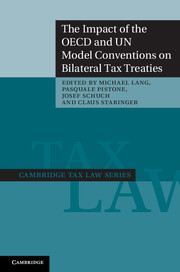Book contents
- Frontmatter
- Contents
- Contributors
- Preface
- Table of cases
- Table of statutes
- General report
- 1 Argentina
- 2 Australia
- 3 Austria
- 4 Belgium
- 5 Brazil
- 6 Canada
- 7 Chile
- 8 China
- 9 Colombia
- 10 Croatia
- 11 The Czech Republic
- 12 Estonia
- 13 Finland
- 14 France
- 15 Germany
- 16 Hong Kong
- 17 Hungary
- 18 India
- 19 Italy
- 20 Lebanon
- 21 Liechtenstein
- 22 The Netherlands
- 23 New Zealand
- 24 Norway
- 25 Peru
- 26 Poland
- 27 Portugal
- 28 Romania
- 29 The Russian Federation
- 30 Serbia
- 31 Slovakia
- 32 Slovenia
- 33 Spain
- 34 Sweden
- 35 Uganda
- 36 The UK
- 37 The USA
- Index
- References
36 - The UK
Published online by Cambridge University Press: 05 November 2014
- Frontmatter
- Contents
- Contributors
- Preface
- Table of cases
- Table of statutes
- General report
- 1 Argentina
- 2 Australia
- 3 Austria
- 4 Belgium
- 5 Brazil
- 6 Canada
- 7 Chile
- 8 China
- 9 Colombia
- 10 Croatia
- 11 The Czech Republic
- 12 Estonia
- 13 Finland
- 14 France
- 15 Germany
- 16 Hong Kong
- 17 Hungary
- 18 India
- 19 Italy
- 20 Lebanon
- 21 Liechtenstein
- 22 The Netherlands
- 23 New Zealand
- 24 Norway
- 25 Peru
- 26 Poland
- 27 Portugal
- 28 Romania
- 29 The Russian Federation
- 30 Serbia
- 31 Slovakia
- 32 Slovenia
- 33 Spain
- 34 Sweden
- 35 Uganda
- 36 The UK
- 37 The USA
- Index
- References
Summary
The relevance of the OECD and UN Model Conventions and their Commentaries for the interpretation of UK tax treaties
The view from the UK
Since the publication by the OECD Fiscal Committee of its Draft Double Taxation Convention in 1963 and its Model Convention in 1977, all tax treaties concluded by the UK have been based on that draft and its successors, with appropriate variations to cater for UK preferences and to take into account, where necessary, the differing economic circumstances, and tax and legal systems, of the two contracting states. The UK was a founding Member country of the OECD and has regularly provided chairmen both of the Committee on Fiscal Affairs and of its Working Party No. 1. Over the years it has taken a leading part in the consideration of the changes that have been made to the text of both the Model and its Commentaries.
It is therefore not surprising that the official position of the UK is that, where the text of a provision of a bilateral treaty follows the wording of a provision in the OECD Model, the Commentary on the provision in the OECD Model may be used as an aid to the interpretation of the treaty provision, whether the Commentary on the Model provision was written before or after the date of the treaty provision in question. The positions of the courts and of scholarly writers in the UK, however, have not always been so clear and the legal basis for referring to the Commentaries, and in particular the question whether reference may properly be made to a Commentary later in date than the provision of a bilateral treaty, will accordingly be discussed later in this chapter.
- Type
- Chapter
- Information
- Publisher: Cambridge University PressPrint publication year: 2012
References
- 2
- Cited by

